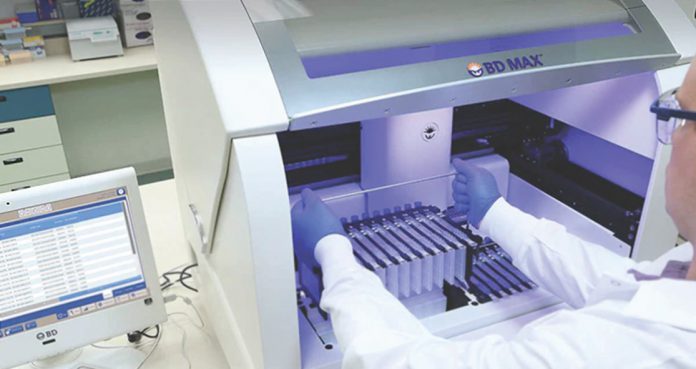The U.S. Food and Drug Administration (FDA) has announced the approval of a new and faster diagnostic test for detecting methicillin-resistant Staphylococcus aureus (MRSA).
The new diagnostic test, called “cobas vivoDx,” is based on bacterial viability and a new technique to detect MRSA bacterial colonization, which is one of the common causes of hospital-acquired infections.
The new test developed by Roche Molecular Systems may help medical providers to diagnose and evaluate patients for MRSA bacterial colonization mush faster than current techniques, according to the FDA.
It uses a new bacteriophage technology that is based on bioluminescence to detect the bacteria from nasal swab samples. The diagnostic test will help detect the microbial colonization within five hours when compared with traditional cultures that take 24 to 48 hours to detect the bacteria.
Director of the Office of In Vitro Diagnostics and Radiological Health in the FDA’s Center for Devices and Radiological Health Dr. Timothy Stenzel said, “Diagnostics that are able to provide accurate results more quickly can offer healthcare providers an advantage when trying to prevent and contain the spread of resistant bacteria.”
“The cobas vivoDx MRSA test adds a new tool in the fight to prevent and control MRSA in high-risk settings,” he added. “The FDA remains committed to supporting efforts to address antimicrobial resistance in order to better protect patients against this ongoing public health challenge.”
When it comes to performance testing, the new diagnostic test correctly detected MRSA in more than 90 percent of nasal swab samples with MRSA and correctly identified no MRSA in more than 98 percent of samples with no MRSA.
The FDA said, “The cobas vivoDx MRSA test is intended to aid in the prevention and control of MRSA infections in healthcare settings and can be used to identify patients needing enhanced precautions for infection control such as isolation and additional decolonization efforts.”
According to the CDC, there were more than 323,000 MRSA hospitalizations and over 10,000 deaths in 2017. The FDA said it would develop special controls, including general controls, to help ensure the safety and efficacy of the cobas vivoDx MRSA test.





















